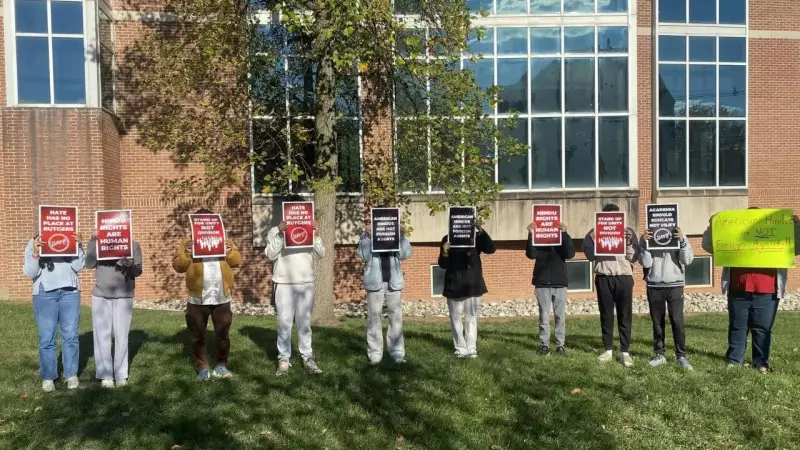
Dozens of Hindu students and community members gathered at William Paterson University in New Jersey this week, voicing strong opposition to a campus lecture they described as deeply offensive and propagating harmful stereotypes against their community.
Peaceful Protest Against 'Foreign Agents' Allegation
The demonstration was organized in response to a talk by Professor Audrey Truschke from Rutgers University, where protesters claim she incorrectly labeled American Hindus as "foreign agents" and made what they consider to be baseless allegations about their community's activities and motivations.
Protesters carried signs with powerful messages including "American Hindus are not foreign agents" and "Stop Hinduphobia," creating a visible presence on campus that drew attention from both students and faculty members.
Student Voices Demand Respect and Understanding
"We are here to protest against the hate speech that was propagated by Professor Audrey Truschke," stated one determined student protester. "She called American Hindus foreign agents. We are Americans. We pay taxes here. This is our home."
The emotional response from students highlighted the deep personal impact of such characterizations, with many emphasizing their American identity while maintaining pride in their cultural heritage.
Institutional Response and Growing Concerns
The controversy has raised important questions about academic freedom, cultural sensitivity, and the responsibility of educational institutions to create inclusive environments for all students.
The Hindu American Foundation (HAF) has been actively involved in supporting the protesting students, highlighting what they see as a pattern of anti-Hindu rhetoric in academic settings that requires addressing.
Broader Implications for Hindu American Community
This incident at William Paterson University reflects larger concerns within the Hindu American community about representation, respect, and the challenge of combating misinformation about their faith and cultural practices in academic discourse.
As the conversation continues, many are calling for more balanced academic discussions that respect diverse perspectives while maintaining scholarly rigor and cultural sensitivity.





